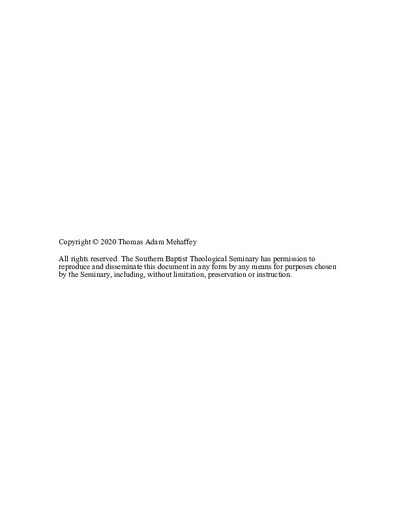| dc.description.abstract | Scripture teaches that leadership was created by God, a concept illustrated by the creation mandate to man to subdue the earth (Gen 1:28-29). As Michael Wilder and Timothy Paul Jones point out, leadership was not something that God put into place after the Fall, but it was God’s plan from the beginning for man to exercise the dominion of the rest of creation. However, as a result of the fall, man needs leadership and guidance in order to fulfill the purposes that God has set forth. Institutions need leadership, and the Church is no exception.
Benjamin Merkle asserts that while church polity is not the weightiest decision that a church will make, adopting a biblical form is essential for the health of the church as it determines who leads and teaches the church. In recent years there has been a growth of the use of elder leadership in congregationalist churches and the increase in elder leadership has included the use of unpaid elders. While there is much prescriptive literature for the role of unpaid elders in Southern Baptist churches, there is little empirical research that describes the roles that unpaid elders are assuming in their congregations.
The purpose of this explanatory sequential, mixed-method study was to understand the role of the unpaid elder in Southern Baptist churches. In the quantitative phase 146 churches with unpaid elders completed a survey related to their experience with unpaid elders in their church. The focus of this thesis was on the ways that unpaid elders are shepherding and teaching. Churches that fit the selection criteria were invited to participate in the qualitative phase.
Nine interviews were conducted with 5 paid elders and 4 unpaid elders from 5 churches in the qualitative phase. The interviews were composed of open-ended questions that asked the elders share how their unpaid elders were involved in shepherding and teaching in their churches. The top three ways unpaid elders were shepherding were through teaching, preaching, and providing church oversight. The top three ways unpaid elders were teaching were through preaching, small groups, and one-on-one discipleship. | en_US |

